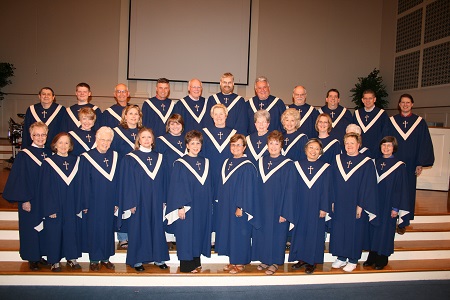Cut the Mustard
 Years ago, Ernest Tubb and Red Foley sang “Too Old to Cut the Mustard.” They gave people a good laugh about aging. You can read the song lyrics here.
Years ago, Ernest Tubb and Red Foley sang “Too Old to Cut the Mustard.” They gave people a good laugh about aging. You can read the song lyrics here.
Young people often think senior adults are as old as the hills or over the hill. However, many older people still cut the mustard. Many young people cannot. Age does not always make a difference.
Cut the mustard means to work well.
People do what needs to be done. They do what is:
- Expected
- Required
They:
- Work with energy and enthusiasm
- Successfully accomplish their task
Cut the mustard applies to things as well as people.
People want what they use to:
- Work well
- Keep working
However, like people, things do not always work as they should.
- Computers crash.
- Cars run out of gas.
- Stoves fail to cook.
Several guesses about how this expression began include the:
- Hard work required to cut mustard plants
- Difficulty in cutting tiny mustard seeds
- Need to cut (dilute) mustard with vinegar to create a good taste
Others ideas have nothing to do with mustard.
However the expression began, it reminds everyone to do their best. Each day offers the opportunity to:
- Rise and shine
- Put hands to the plow
- Bear fruit from a job well done
“[The righteous] will still bear fruit in old age, they will stay fresh and green” (Psalm 92:14 NIV).
Thanks to Emily Akin for the suggestion. Photo courtesy of Pixabay.
Do you have an expression you want explained or a thought about this one? If so, please comment below.
Subscribe to receive my weekly posts by email and receive a free copy of “Words of Hope for Days that Hurt.”
If you enjoyed this post, please share it with your friends.
 To get to the top floor of a house, we usually climb stairs. To go over the top of the house requires more work – extreme efforts. Most of us would be foolish to try.
To get to the top floor of a house, we usually climb stairs. To go over the top of the house requires more work – extreme efforts. Most of us would be foolish to try. Dr. Seuss wrote, “With your head full of brains and your shoes full of feet, you’re too smart to go down any not-so-good street.”
Dr. Seuss wrote, “With your head full of brains and your shoes full of feet, you’re too smart to go down any not-so-good street.” You made your bed, you must lie in it has nothing to do with making a bed. The expression focuses on behavior.
You made your bed, you must lie in it has nothing to do with making a bed. The expression focuses on behavior. While on a trip, many of us look forward to the end of the road.
While on a trip, many of us look forward to the end of the road.  Some people stay cool as a cucumber.
Some people stay cool as a cucumber. My friend Phyllis recently had an ox in the ditch. She and her husband dressed for church. Then they noticed a cow having trouble birthing its calf. Their cow needed help. Putting
My friend Phyllis recently had an ox in the ditch. She and her husband dressed for church. Then they noticed a cow having trouble birthing its calf. Their cow needed help. Putting 
 Pastors don’t need to convince believers to accept Jesus. That would be like preaching to the choir.
Pastors don’t need to convince believers to accept Jesus. That would be like preaching to the choir.  To spread a message, the messenger must go to those who:
To spread a message, the messenger must go to those who: Of course, people enjoy sharing the same beliefs. Choir members sing and praise God with other believers. True worship makes them
Of course, people enjoy sharing the same beliefs. Choir members sing and praise God with other believers. True worship makes them  Chickens come home to roost.
Chickens come home to roost.